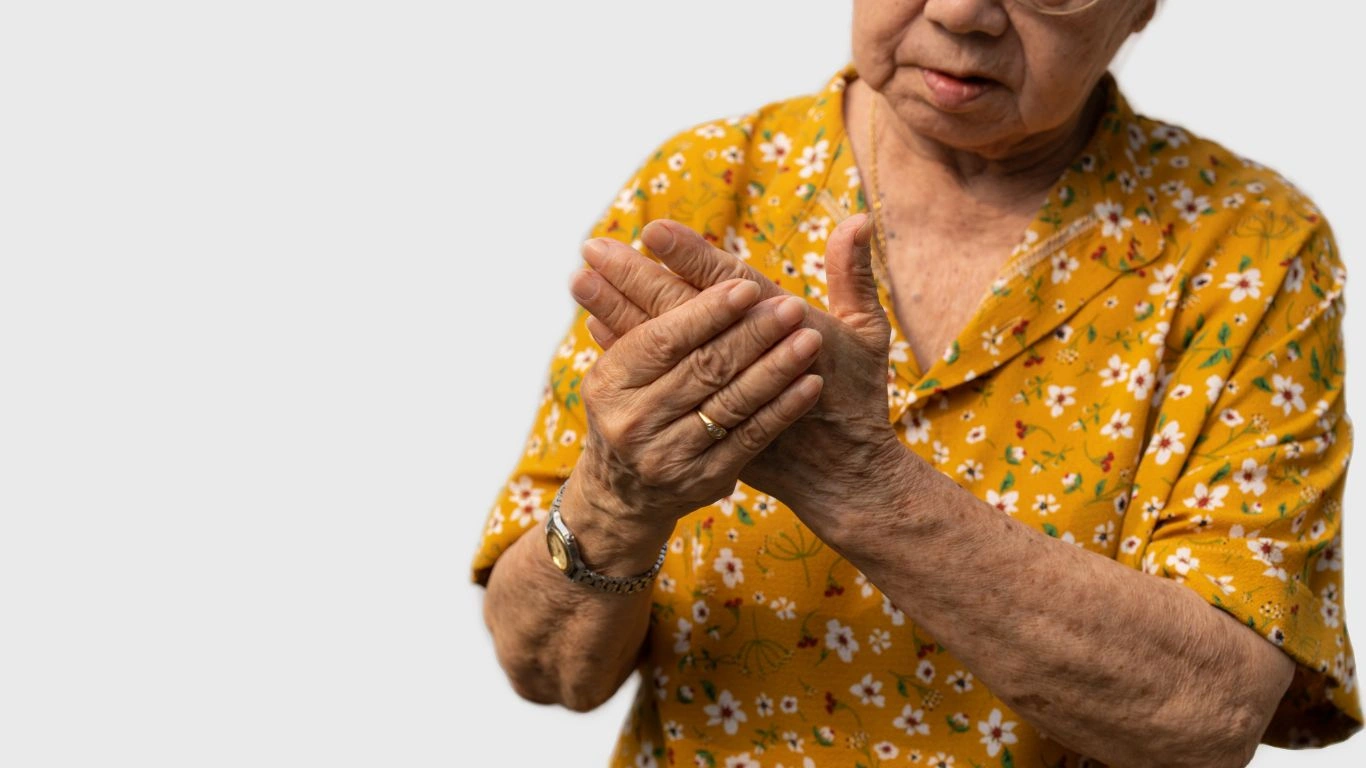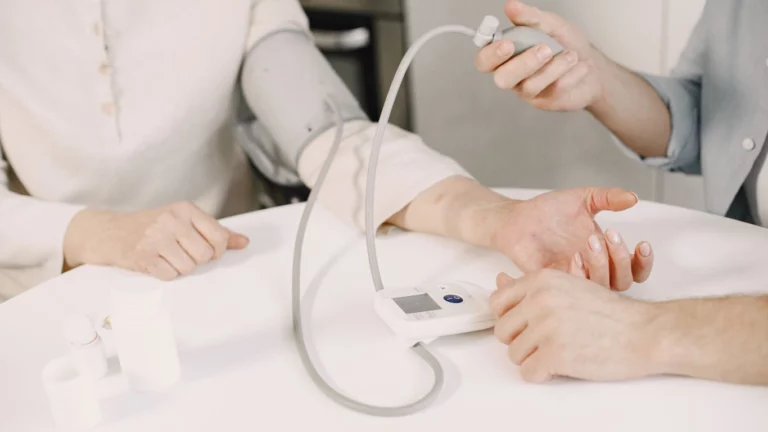Is Rheumatoid Arthritis Genetic? 🧬 Understanding the Genetic Link
What is Rheumatoid Arthritis Anyway?
Alright, so you’re wondering if rheumatoid arthritis (RA) is something that runs in the family? Well, you’re not alone. This disease can be confusing, especially when it feels like it came out of nowhere. Let’s dig into whether RA is genetic, and if you can blame your family for it. Spoiler alert: it’s not just about your genes. 😅

Before we get into the genetic stuff, let’s make sure we’re on the same page about what RA actually is. Basically, it’s an autoimmune disease where your immune system, which normally protects you, starts attacking your own joints. This causes pain, swelling, and stiffness—especially in the morning. It’s more common in women, and you usually see it between ages 30 and 60, though it can show up at any time.
So, Is RA Genetic? 🤔
Okay, let’s get to the burning question—Is RA genetic? The short answer: Yep, genetics do play a role. But here’s the thing, it’s not just about having certain genes. There’s a mix of genetics and other stuff that influences whether or not you’ll get RA.
The Role of the HLA-DRB1 Gene
Ever heard of the HLA-DRB1 gene? If not, don’t worry, it’s a mouthful. This gene helps your immune system recognize what’s “you” and what’s “not you.” If you’ve got a variation of this gene, it might make your immune system more likely to attack your joints. So, yeah, if it’s in your genes, you might have a higher chance of developing RA.
But, and this is key, just having this gene doesn’t automatically mean you’ll get RA. It’s like having a hand of cards—if your other environmental factors (like smoking or stress) line up just right, you might end up with RA.
Other Stuff That Affects RA (It’s Not All Genetics!)
Okay, so we’ve established that genes matter. But RA isn’t just about what’s in your DNA. There are a bunch of environmental factors that can trigger RA if you’re already genetically predisposed.
- Smoking: Yep, smoking is a huge one. If you have the gene for RA and you smoke, you’re seriously upping your chances of getting the disease. It’s not a fun combo.
- Infections: Some viral or bacterial infections might be the trigger for RA in people who are genetically at risk.
- Diet and Stress: Not saying that pizza is the cause, but a poor diet combined with a ton of stress can make inflammation worse, which might lead to RA flaring up.
So, even if you’ve got the genes, your lifestyle choices and stuff like stress can really tip the scales.
Troubleshooting RA Diagnosis: Common Issues
Let’s talk about some of the struggles people face when trying to figure out if they have RA. It’s not always as easy as it sounds.
1. RA Can Be Hard to Pinpoint
RA’s symptoms can overlap with other conditions like lupus or even osteoarthritis, so doctors need to run a bunch of tests (blood work, X-rays, etc.) to figure it out. It’s not always obvious.
2. Early Diagnosis Is Tough
RA can sneak up on you. Sometimes, it starts off as mild joint pain that gets worse over time. If you’re dealing with joint pain that lasts for a while (especially if it’s worse in the morning), it’s definitely worth getting checked out sooner rather than later.
3. Genetic Testing—Does It Help?
Right now, genetic testing for RA isn’t super helpful for diagnosing the disease. Sure, it can tell you if you’re at a higher risk, but it’s not like you’ll go to the doctor and say, “I’ve got the RA gene, give me a diagnosis.” But if you have a family history, it might help your doctor keep an eye out for things early on.
Real-Life Stories: How People Handle RA
Let’s take a look at a couple of real stories to see how people manage RA, whether they have it because of their genes or something else.
Sarah’s Story
Sarah’s mom had RA, and when Sarah started getting stiff in her hands and knees, she went to her doctor. She got diagnosed at 35, but because she caught it early, she was able to start treatment right away. She’s been doing great, managing her RA with medication, a healthy diet, and staying active. Early diagnosis made a huge difference.
James’ Journey: Environmental Triggers at Play
James didn’t have RA in his family, but he’d been a heavy smoker for years. At 50, he started noticing joint pain in his fingers and wrists. He saw his doctor and was diagnosed with RA. After quitting smoking and making some lifestyle changes, his symptoms improved a lot. It shows that sometimes, it’s not just your genes—it’s your environment, too.
Key Takeaways / Summary
- Yes, RA can be genetic, especially if you have certain genes like HLA-DRB1. But just because you have these genes, it doesn’t mean you’ll definitely get RA.
- Your environment matters too. Things like smoking, infections, and stress can trigger RA in people who are genetically predisposed.
- Early diagnosis is super important. The sooner you start treatment, the better you can manage symptoms and prevent damage.
- Lifestyle changes (like quitting smoking and managing stress) can make a big difference in how RA affects you.

Troubleshooting RA Diagnosis: Common Issues
Let’s talk about some of the struggles people face when trying to figure out if they have RA. It’s not always as easy as it sounds.
1. RA Can Be Hard to Pinpoint
RA’s symptoms can overlap with other conditions like lupus or even osteoarthritis, so doctors need to run a bunch of tests (blood work, X-rays, etc.) to figure it out. It’s not always obvious.
2. Early Diagnosis Is Tough
RA can sneak up on you. Sometimes, it starts off as mild joint pain that gets worse over time. If you’re dealing with joint pain that lasts for a while (especially if it’s worse in the morning), it’s definitely worth getting checked out sooner rather than later.
3. Genetic Testing—Does It Help?
Right now, genetic testing for RA isn’t super helpful for diagnosing the disease. Sure, it can tell you if you’re at a higher risk, but it’s not like you’ll go to the doctor and say, “I’ve got the RA gene, give me a diagnosis.” But if you have a family history, it might help your doctor keep an eye out for things early on.
Case Studies / Success Stories: Real Life Examples
Let’s take a look at a couple of real stories to see how people manage RA, whether they have it because of their genes or something else.
Sarah’s Story
Sarah’s mom had RA, and when Sarah started getting stiff in her hands and knees, she went to her doctor. She got diagnosed at 35, but because she caught it early, she was able to start treatment right away. She’s been doing great, managing her RA with medication, a healthy diet, and staying active. Early diagnosis made a huge difference.
James’ Journey: Environmental Triggers at Play
James didn’t have RA in his family, but he’d been a heavy smoker for years. At 50, he started noticing joint pain in his fingers and wrists. He saw his doctor and was diagnosed with RA. After quitting smoking and making some lifestyle changes, his symptoms improved a lot. It shows that sometimes, it’s not just your genes—it’s your environment, too.
Key Takeaways / Summary
- Yes, RA can be genetic, especially if you have certain genes like HLA-DRB1. But just because you have these genes, it doesn’t mean you’ll definitely get RA.
- Your environment matters too. Things like smoking, infections, and stress can trigger RA in people who are genetically predisposed.
- Early diagnosis is super important. The sooner you start treatment, the better you can manage symptoms and prevent damage.
- Lifestyle changes (like quitting smoking and managing stress) can make a big difference in how RA affects you.

FAQs
- Can RA skip a generation?
Yep! RA doesn’t follow a straight path. Your grandparents might have had it, but your parents might not, and you might get it. It’s all about that mix of genes and environment. - Can RA be prevented?
While there’s no surefire way to prevent it, living a healthy lifestyle—like not smoking and eating well—can help reduce your risk if you’re genetically predisposed. - Is RA only about joint pain?
Not at all. RA can affect other parts of the body too, like your heart, lungs, and eyes. So it’s important to manage it, even if your joints are the only part that hurts. - Are there new treatments for RA?
Oh yeah! There are some awesome new treatments, including biologics, that target the immune system more precisely. They’re helping a lot of people manage RA better.
References
- American College of Rheumatology – Genetic Links to RA
- NIAMS – RA and Risk Factors
- Mayo Clinic – Rheumatoid Arthritis FAQs
Disclaimer
Just a heads up, this article is for informational purposes and isn’t a replacement for medical advice. Always check with your doctor before making health decisions.
Call to Action
Think you might be at risk for RA or dealing with joint pain? Don’t wait—reach out to your healthcare provider to get checked out. Early treatment is key, and you’ve got this! Take care of yourself. 💪


Tarra Nugroho is a dedicated Nurse Practitioner with a strong foundation in family and preventive care. She brings both compassion and clinical expertise to her practice, focusing on patient-centered care and health education. As a contributor to Healthusias.com, Tarra translates medical knowledge into clear, empowering articles on topics like women’s health, chronic disease management, and lifestyle medicine. Her mission is simple: help people feel seen, heard, and informed—both in the clinic and through the content she creates. When she’s not caring for patients, Tarra enjoys weekend hikes, plant-based cooking, and curling up with a good health podcast.







